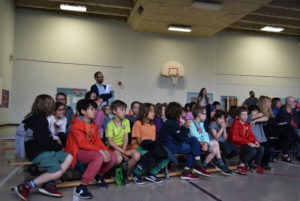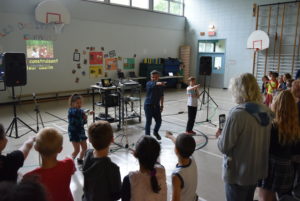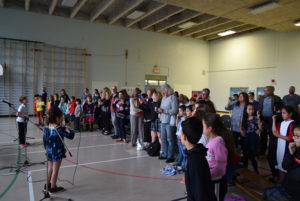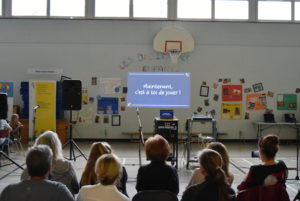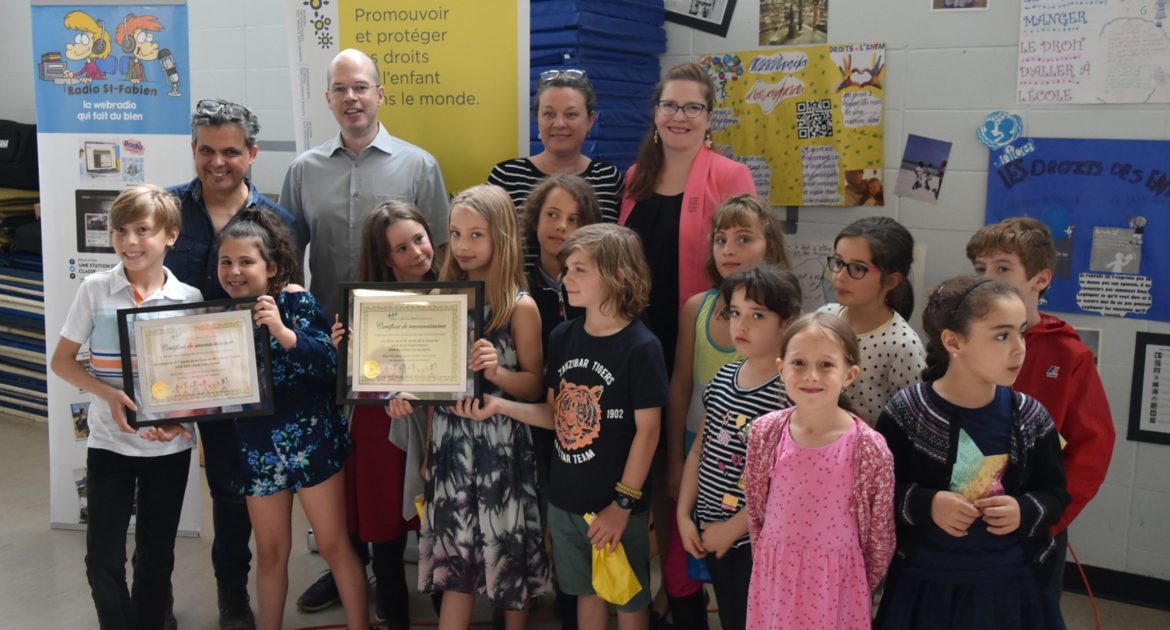
On Friday, 14th June , the IBCR unveiled its educational video game “Détective en mission pour les droits de l’enfant”, created in collaboration with Polytechnique Montréal, French École nationale supérieure des Arts et Métiers ParisTech in France and two primary school classes (from 7 to 11 years old) from Saint-Fabien and Sainte-Cécile schools in Montréal.
A pioneering support of the genre to address children’s rights with the first concerned, the game was officially launched at the Saint-Fabien school in Montreal.
For years, the International Bureau for Children’s Rights has been committed to defend the participation of children in the exercise of their rights. True to this value, we have involved children in all stages of the creation of this video game; an involvement that ends in apotheosis since the official launch of the game has also been entrusted to them.
 Since Saint-Fabien School has professional radio recording equipment, the event took the form of a radio programme hosted by two fourth-grade students, Anaïs and Xavier, mixing interviews with members of the IBCR and a teacher from Polytechnique Montréal, reports on children’s rights and feedback from children in each school on their experience of participating in this project.
Since Saint-Fabien School has professional radio recording equipment, the event took the form of a radio programme hosted by two fourth-grade students, Anaïs and Xavier, mixing interviews with members of the IBCR and a teacher from Polytechnique Montréal, reports on children’s rights and feedback from children in each school on their experience of participating in this project.
The young presenters hosted the programme with impressive professionalism, both in presenting the context in which the video game was created and in asking questions to the guests. The moments of exchange were mixed with musical breaks related to the rights of the child, and moments of participation in a contagious good mood. An emotional moment for the audience and the stakeholders, which was shared with the entire Saint-Fabien school, as the show was broadcast live throughout the school.
The very first educational video game of its kind, “Detective on a mission (…)” aims to raise children’s awareness in a playful way of their universal and fundamental rights, as established by the United Nations Convention on the Rights of the Child and its optional protocols. It is also and above all a question of encouraging children to exercise their role as citizens in society for real and lasting change.
Click here to listen to the radio show
Children’s participation
The involvement of children throughout the implementation of this project was essential and was reflected in the various stages of the design, development and promotion of the game. It has made it possible to integrate their points of view and perspectives so that each child can recognise himself and want to evolve in the game. In this process of participation, valuing the contribution and creativity of children was as important as empowering them, both individually and socially.
> Click here to learn more about the previous steps in creating the video game
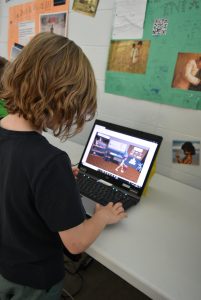 The game
The game
“Detective on a mission for the Rights of the Child” is an investigative game in which the main character, “Detective Pinpin”, is confronted with situations that are unfair regarding the rights of the child. Several actions are proposed to respond to the situation, the objective being to choose the one most likely to resolve the injustice. When the child chooses the best proposal in terms of his or her rights, he or she moves on to the next level and receives a golden trophy. Each of the five levels represents a situation specific to the daily lives of young people, such as sports training or the use of social networks.
Designed for children aged 7 to 11, the game is available for free online at https://jeu.ibcr.org/ (optimised for Mozilla Firefox).
> View a short video presentation of the game
Click here to play! (in French only)
What happens next?
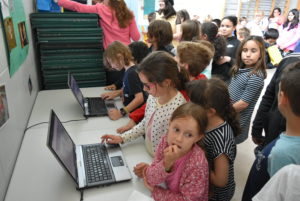 The game will first be distributed to Quebec school boards, community agencies and child protection organisations. It will be accompanied by a supporting document introducing the Convention on the Rights of the Child and the instructions for using the game (see this document here, in French only).
The game will first be distributed to Quebec school boards, community agencies and child protection organisations. It will be accompanied by a supporting document introducing the Convention on the Rights of the Child and the instructions for using the game (see this document here, in French only).
Although it can be played independently by children, the game can also be integrated into educational programmes or awareness-raising activities for the promotion and protection of children’s rights.
In a second phase, the IBCR plans to translate the game into several languages for global dissemination, including through partner organisations of the Bureau.
